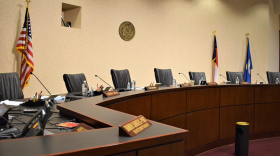More North Carolina high schoolers are taking college-level classes and passing exams to earn college credit than ever before.
Many high schools offer Advanced Placement (AP) classes designed to teach college-level content. Students who pass a standardized final exam for the class can earn college credit for that course, saving them money in college.
More than 84,000 North Carolina students took an exam for an AP class last school year, setting a record high. More than 65% of AP exams taken by North Carolina students received a passing score, slightly outpacing the national average and outperforming any prior year in the state.

“Another big win for us in North Carolina is we've seen increased numbers of students of color participating in the AP program,” said Michael Maher, of the North Carolina Department of Public Instruction.
The number of AP exams taken by Black and Latino students in North Carolina went up by about 20% for each group in the past year, with more students also earning passing scores. That's narrowing racial and ethnic gaps in access to the classes.
Maher is the DPI’s Deputy State Superintendent for Standards, Accountability and Research. He credited state policies with helping expand access to the rigorous courses.
Ten years ago, the state began paying students' exam fees. At the same time, the North Carolina Department of Public Instruction joined a partnership with the College Board, which administers AP exams, to provide North Carolina educators with professional development, data and resources to promote access to AP classes across the state.
Then, in 2018, the North Carolina General Assembly passed a law requiring any student who earns a top score on state math tests to be automatically enrolled in AP math classes.
Maher said the latest data from the College Board provides a positive example that runs counter to a narrative that schools have been failing to provide rigorous education since the pandemic.
“There's plenty of talk about rigor in schools,” Maher said. “This is an example of rigorous content that kids are engaged in, and they are succeeding.”







